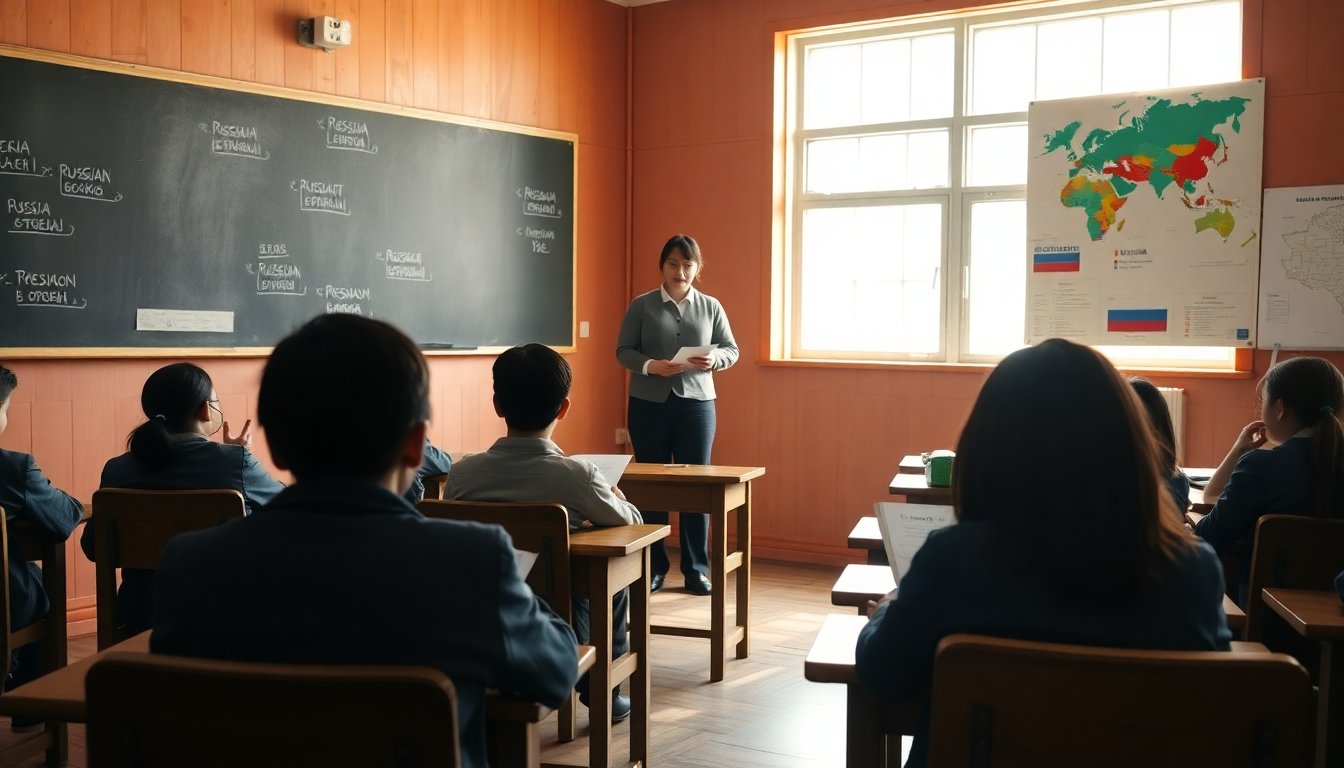Table of Contents
In a strategic move to strengthen bilateral relations, North Korea has mandated the inclusion of the Russian language in its school curriculum starting from the fourth grade. This initiative promotes linguistic education and signifies a deepening alignment with Russia, particularly amid the ongoing military conflict in Ukraine.
According to Alexander Kozlov, the Russian minister of natural resources and environment, approximately 600 North Koreans are currently enrolled in Russian language courses. This makes Russian one of the most sought-after languages in North Korea, reflecting a growing cultural and educational exchange between the two nations.
Expanding educational cooperation
The educational relationship has seen reciprocal interest, with around 3,000 Russian students studying Korean studies across various educational institutions in Russia. Kozlov noted a significant increase in North Korean students pursuing higher education in Russia, with 96 individuals accepted into Russian universities last year, including prestigious institutions such as MGIMO, known for training diplomats.
Focus on key sectors
The cooperation extends beyond language learning, encompassing sectors such as banking, energy, medicine, and geology. Russia is actively establishing a center in North Korea to facilitate Russian language education at Kim Chol Ju Normal University, further cementing their educational ties.
These educational initiatives occur against the backdrop of a significant geopolitical shift following Russia’s invasion of Ukraine, which has led to an increased North Korean support for Moscow. Reports indicate that North Korea has supplied weapons and sent troops to assist Russian forces.
Tourism and cultural exchanges
In a sign of growing camaraderie, Russian tourists have begun visiting North Korean resorts, aided by the introduction of direct flights to Pyongyang. This influx of visitors reflects an expanding cultural exchange that reaches beyond the classroom.
Shared interests in cybersecurity
Moreover, the two nations have found common ground in cybersecurity, with reported collaborations between state-linked cybercrime groups: Russia’s Gamaredon and North Korea’s Lazarus. This partnership highlights the multifaceted nature of their relationship, which encompasses education, tourism, and cyber capabilities.
The political landscape remains complex, with Russian officials expressing skepticism towards European diplomatic proposals, illustrating strained relations with the West. Despite these tensions, North Korea’s educational reforms demonstrate a deliberate effort to strengthen ties with Russia.
As the situation evolves, both countries appear committed to exploring and expanding their collaborative efforts across various sectors, further deepening their alliance.


